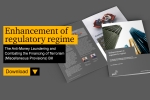The Budget marks a step forward in sustainability, but without strong governance and accountability, its long-term impact remains uncertain.
Overview
The Budget signals a promising shift toward sustainability, reflecting Mauritius’ growing ambition to build a future-ready, environmentally conscious economy. The announced initiatives are a step in the right direction, but without strong monitoring and accountability mechanisms, their long-term impact may fall short of expectations.
While sustainability is increasingly woven into national planning, the Budget still reflects a conventional development mindset rather than a bold, integrated sustainability strategy. This disconnect could hinder governance, climate resilience, and economic competitiveness, especially when measured against global benchmarks like the EU Green Deal and the Singapore Green Plan.
To strengthen its position, Mauritius would benefit from a comprehensive national sustainability framework, anchored in measurable KPIs, robust governance, and alignment with international standards.
Such a framework would not only enhance transparency and effectiveness but also unlock access to climate finance and attract sustainable investment in an increasingly competitive global landscape.
Environmental Initiatives
The Budget prioritises climate action, sustainable transport, circular economy, and marine protection.
Climate Action & Energy Transition: Rs30bn over three years for solar and biomass projects, plus Rs3.3bn for environmental management. A Future Fund (from 2028) will support clean energy, climate mitigation, and adaptation. A Climate Finance Unit will manage the mobilised funds.
Sustainable Transportation: 105 electric buses by January 2026, SMART bus shelters, cashless ticketing, and adaptive traffic systems to reduce congestion and emissions.
Circular Economy: A four-pillar waste-to-wealth strategy, waste-to-art, composting, energy recovery, and metal recycling, supported by a Rs5 plastic bottle deposit scheme.
Marine Protection: Rs164m for habitat restoration, erosion control, and marine conservation, with stricter regulations including mandatory fisher retirement at 65+.
Ocean Economy: Focus on sustainable fisheries, marine conservation, infrastructure, climate finance, and legislative reforms to promote blue economy governance.
Social Initiatives
The Budget focuses on social sustainability, inclusive welfare, and human development.
Inclusive Social Protection receives Rs90bn (34.8% of the budget), including Rs68bn for pensions and Rs660m to support 7,000 households via the Social Register of Mauritius, offering benefits like free internet.
Healthcare gets Rs18.5bn, featuring the ‘Path to Remission’ diabetes program, digital health tools, and new taxes on sugary products.
Education is allocated Rs438m for infrastructure upgrades, AI modules in higher education, educator training, and a new National Education Council.
Housing receives Rs107.5m, including Rs67.5m for Social Register beneficiaries and Rs40m for NHDC estate maintenance. Food security is supported with Rs800m for farmers and innovative agriculture.
Gender equity is addressed through policy reforms to improve women’s job market access and support for entrepreneurship, including better loans, mentorship, and digital economy participation.
Sector Specific Initiatives
The government is targeting three key sectors to advance sustainability and resilience using a strong cross-sectoral approach.
Tourism receives Rs900m to develop a sustainable and inclusive tourism blueprint. This includes a €3 nightly tourist fee and a Heritage Stewardship Scheme to attract private investment in public heritage sites.
Agriculture and Food Security is allocated Rs800m to boost resilience through vertical farming, indoor climate-controlled systems, and AI integration tailored for small-scale producers, modernising practices and strengthening food security.
Blue Economy Development outlines strategic focus areas, namely, sustainable fisheries, ocean-based renewable energy, marine transport optimisation, and innovative blue finance mechanisms; though no specific funding is detailed.
Key areas for improvement
Biodiversity: Focus limited to marine conservation, with no nature-based solutions or ecosystem valuation.
Waste Management: Despite Rs662m allocated to circular economy, landfill issues persist, and no climate fund is directed to solid waste.
Sustainability Reporting: No mandatory disclosures aligned with ISSB or GRI.
Sustainable Finance: Lacks incentives for green bonds or sustainable investment products.
Climate Risk: No stress testing or integration into fiscal planning or insurance frameworks.
Migrant Workers: Acknowledges labour shortages but lacks protections for migrant welfare.
Key measures
Energy:
Rs30bn allocated over the next three years for solar and biomass projects
Food Security:
Food resilience scheme to incentivise controlled environment agriculture
Ocean Economy :
Focus on six strategic ocean economy sectors
Education:
Technical and Vocational Education and Training strategy to integrate in mainstream education, address skills mismatch and meet industry requirements
Subscribe to download PwC's National Budget 2025 - 2026 Brief
Contact us

Julien Tyack
Risk Assurance Services Partner and Sustainability Leader, PwC Mauritius
Tel: +230 404 5210













